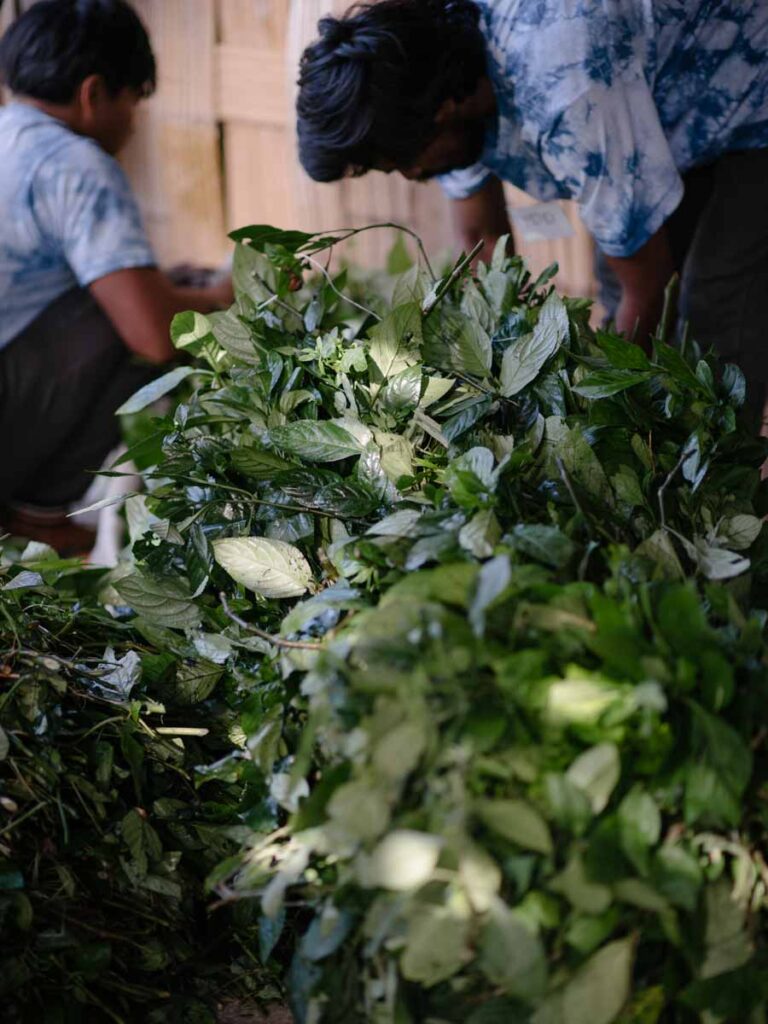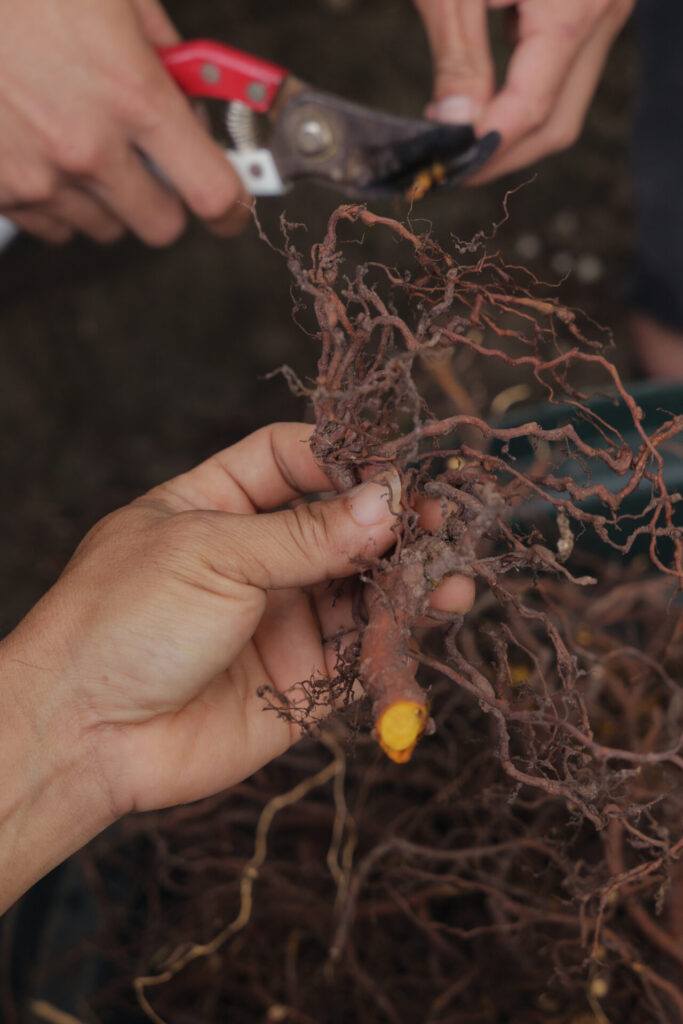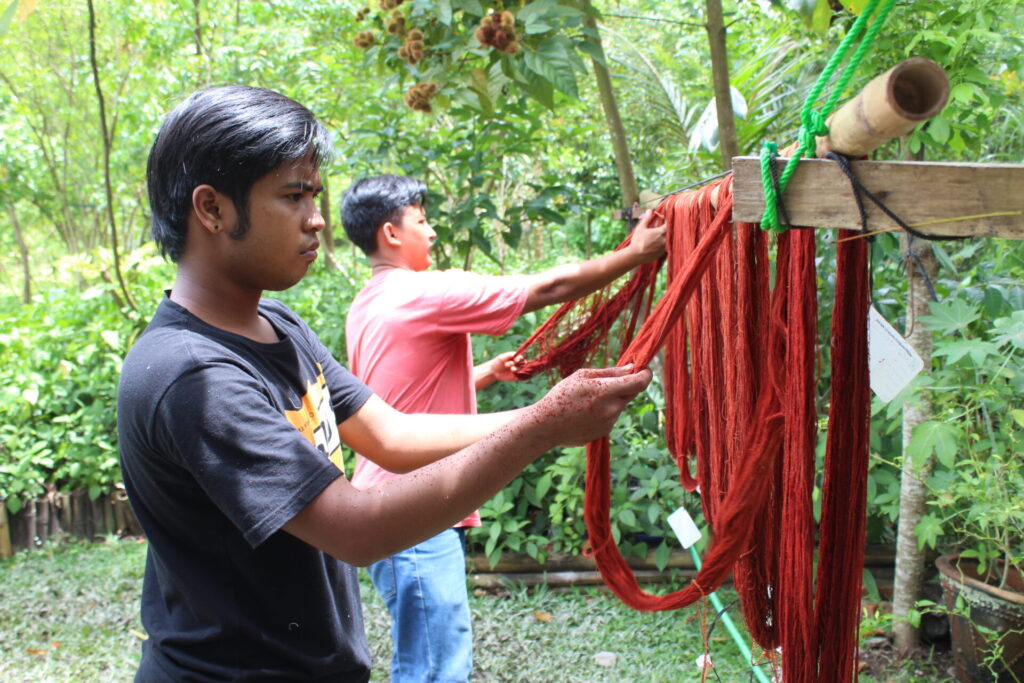A little backstory from Kathy:
I’ve known Jean and William for many years through their trunk shows held in Seattle, where they’d speak about their cultural and natural dye projects in Bali as well as bring an array of incredible traditional textiles to view and purchase. From the beginning, I was impressed how they always put the weavers and communities front and center to their work. The quality and breadth of the textiles is exceptional, and the Seattle Art Museum acquired a dozen pieces for the Ikat exhibition in 2023. We’re honored and excited to work with them for this upcoming tour to Bali.
William Ingram and Jean Howe are co-founders of Threads of Life, a Bali-based social enterprise that has worked with over 1000 traditional weavers and their families in 50 communities on 12 Indonesian islands since 1997. Jean’s work has focused on the intangible culture embodied in Indonesia’s textile arts. Through handling thousands of the highest quality traditional textiles, she has developed a deep knowledge and is a steadfast advocate of the archipelago’s textile arts. As director of Threads of Life’s sister nonprofit, the Bebali Foundation, since 2002, William has led the organization’s support for sustainable cultivation and use of natural dyes by these same communities. He is the author of “A Little Bit One O’clock: Living with a Balinese Family”.

We are so excited to be hosting this tour with you, and are looking forward to diving into the rich textile history and culture of Bali. Can you tell us about what drew you to Bali? We would love to know your origin story.
When we first went to Bali in the 1980s, we were attracted by the culture and the generous hospitality. Bali offered an alternative to hectic consumerism, a life centered around spirituality and community. There was so much to learn! We lived in a homestay with a Balinese family and the relationship with them became our entrance point into the culture. They are still our business partners and colleagues in Threads of Life.
The Bebali Foundation was born out of a desire for preserving the practice of natural dyes and by creating livelihoods for the over 1200 women who participate. Can you speak on this – and how you have created both a business and foundation that produces both high quality textiles but also honors the traditions of the communities you work with?
When we started Threads of Life our aim was to support the continuation of Indonesia’s textile traditions and the cultures they express. We focussed on natural dyed textiles as they were the most culturally important and the most valuable in terms of a viable business model, and this meant that we became involved in issues of dye knowledge transmission between generations and dye plant cultivation. We tried to do all this under the business umbrella but it soon became clear that this was not working financially, so we started the nonprofit Bebali Foundation.

What were both of your first experiences with Natural dyes? What was the “Aha!” moment when you knew you wanted to dedicate your work to this medium?
Traveling through the islands of eastern Indonesia in the 1990s, meeting weavers, seeing textiles, learning about the pivotal position of these textiles in the material culture of the communities we were visiting, and being drawn to the beauty of the natural colors: these all built up to a commitment to natural dyes. Dedication emerged as we learned how the dyes connected the textiles and the wisdom traditions they expressed to the land from which they sprung.
Can you speak to us about Ceriops and the Indigo that you work with? We love carrying your products, please let our audience know about the communities you source these dyes from and how these dyes are integral to the work that you do.
The principal colors seen in Indonesian traditional textiles are red, blue, white, and shades of brown. White is the color of the raw cotton. Red is from the root bark of Morinda citrifolia trees. Blue is from Indigofera tinctoria and I. suffruticosa. And while browns are from various tannin-bearing sources, the bark of the mangrove species, Ceriops tagal, is much used in Javanese batik.
Developing dye practices beyond wild-harvesting for local cultural needs means cultivating the dye plants. But we want to avoid eroding food security by replacing food crops with dye plants. A non-native infertile hybrid of Strobilanthes cusia, that grows in Indonesia only at higher altitudes and in the shade of forest gardens, fits that bill without becoming invasive. And so we have supported community projects developing outgrower cultivation in east Bali, central Java and central Flores.
Mangrove forests are threatened across the archipelago, so when we found a Forest Stewardship Council certified mangrove concession in Papua, we developed an arrangement whereby we buy and extract of the bark that is waste from the harvesting process.
We use the indigo and Ceriops in our dye studio and sell both onwards. Morinda cultivation has proved more challenging, but we are getting towards a more commercial scale with that, too.


What advice would you give to young entrepreneurs working with natural dyes that want to also steward land based practices and work respectfully in the communities they are working with?
For us, the key has been becoming students of the traditions we work with rather than making the tradition keepers into students of the market and followers of the latest Pantone color.
What do you wish the participants to take away from their experience in Bali on our Tour?
Apart from having an enjoyable time, finding creative fulfillment in the studio work, and learning about Indonesia’s textile arts, our hope is that participants will gain an appreciation for and some insight into the different worldview of the culture they will be engaging with. And that this insight might help them participate in realigning our culture towards more sustainable ways.

